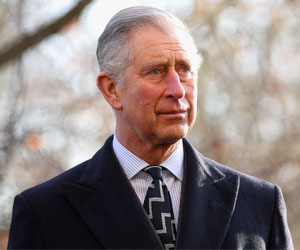Speculations mount and stocks crash as Apple CEO Steve Jobs announces he is going on extended leave, for six months as against only two months he had hinted earlier. Concerns over his health deepen.
In a fresh communication, Jobs said, “I am sure all of you saw my letter last week sharing something very personal with the Apple community. Unfortunately, the curiosity over my personal health continues to be a distraction not only for me and my family, but everyone else at Apple as well. In addition, during the past week I have learned that my health-related issues are more complex than I originally thought.In order to take myself out of the limelight and focus on my health, and to allow everyone at Apple to focus on delivering extraordinary products, I have decided to take a medical leave of absence until the end of June.
I have asked Tim Cook to be responsible for Apple’s day to day operations, and I know he and the rest of the executive management team will do a great job. As CEO, I plan to remain involved in major strategic decisions while I am out. Our board of directors fully supports this plan.
In a previous message he had referred to some hormonal imbalance as his problem, but now the problem looks more serious.
New York Times reported, "Two people who are familiar with Mr. Jobs’s current medical treatment said he was not suffering from a recurrence of cancer, but a condition that was preventing his body from absorbing food. Doctors have also advised him to cut down on stress, which may be making the problem worse, these people said."
Jobs is worth $5.4bn and was last year named as the most powerful businessman in the world by Fortune Magazine.
Advertisement
Steven P. Jobs, 53, co-founded Apple with Steve Wozniak in 1976 at the dawn of the personal computer revolution.
Advertisement
Since then, under Mr Jobs' demanding leadership, Apple has churned out a string of sleek gadgets, from the iMac and the iPod to a new line of aluminum-covered Macbooks and the coveted iPhone.
Many investors fear that without Mr Jobs, Apple would not be able to sustain its growth or its high-end minimalist style.
The company's chief operating officer, Tim Cook, will take over Mr Jobs' responsibilities while he is on leave.
However, Mr Jobs has said he wants to remain involved in major strategic decisions.
Still, the news shocked investors and sent the company's shares down as much as 10 per cent.
Shares of the American multi-national corporation have surged and crashed over the past year in step with rumors about the CEO's health and his gaunt appearance.
While the top executive's health is an issue for investors in any company, at Apple the level of concern reaches fever pitch because Mr Jobs has a hand in everything from ideas for new products, to the way they are marketed.
Apple's history of hushing up information about Mr Jobs' health has only fuelled investor speculation, western media grumble.
The company waited until after Mr Jobs underwent surgery in 2004 to treat a very rare form of pancreatic cancer - an islet cell neuroendocrine tumor - before alerting investors, it is pointed out.
Some insensitive hackers announced the ‘death’ of Jobs last week. And now newspapers are reporting that Apple could be sued by investors unhappy with the company's about-face on the health of Mr Jobs. Only the law is not clear on what duty the company has to disclose personal medical information, legal experts said on Wednesday.
'It is a grey area because what is personal and what's a fiduciary responsibility,' they said.
Ashok Kumar, an analyst with investment banking firm Collins Stewart LLC, said. 'Steve's presence at Apple probably carries significantly more weight than ... Michael Dell's presence at Dell.'
Although securities lawsuits usually arise from companies' false statements about material aspects of their businesses, Apple could run into trouble by falsely allaying investors concerns about whether Jobs would remain at its helm.
Plaintiffs and defence lawyers said this type of fraud allegation would be hard to prove and a first of its kind.
Apple may have 'minimized' Jobs' illness in the same way that pharmaceutical companies sometimes fail to promptly and thoroughly disclose how drugs are faring in government trials - a frequent lawsuit target.
'If the company misled me by giving me the impression that (Jobs) was going to continue to lead the company, that could be an actionable statement,' one lawyer said.
Of course the company will respond saying 's likely defence that Jobs' medical condition is constantly evolving.
'In the absence of some memo from a doctor that contradicts what he is saying, I would think it would be problematic for a plaintiffs (to sue for disclosure lapses),' said the attorney, who asked not to be named because his firm is litigating with Apple.
'It is not the same as looking at a piece of financial information at the end of the month.'
Source-Medindia
GPL/L











